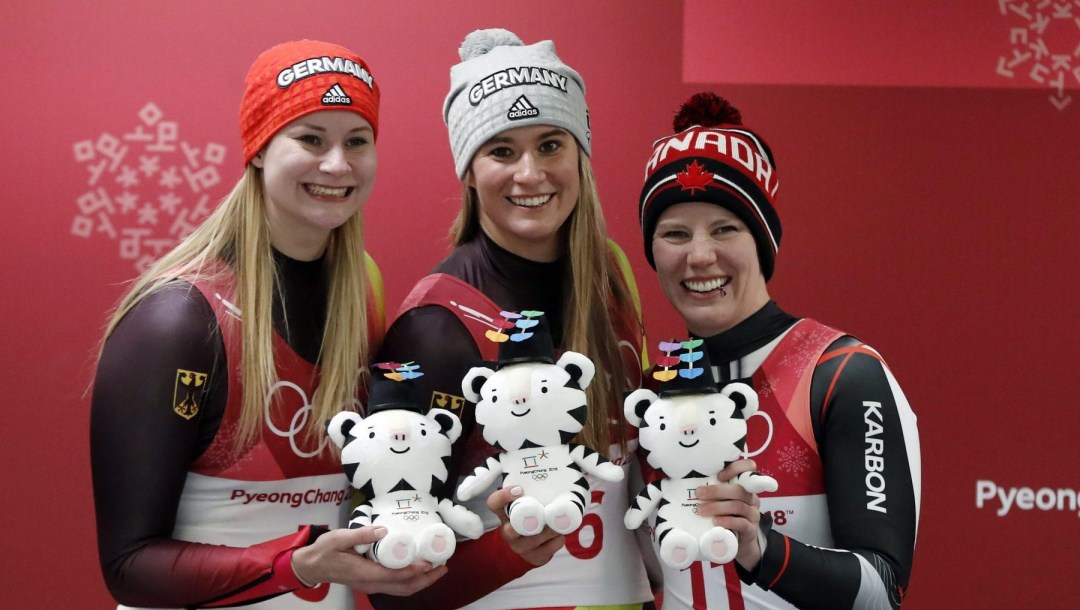Top international performances from PyeongChang 2018
“The Dutch won all their medals in speed skating” might sound like casual bar talk, but it’s actually true.
PyeongChang 2018 brought a lot of wonderful moments. Obviously Canadian accomplishments are near and dear to our hearts at Olympic.ca, yet we would do the Games a disservice by not highlighting some noteworthy non-Canadian performances.
Norway
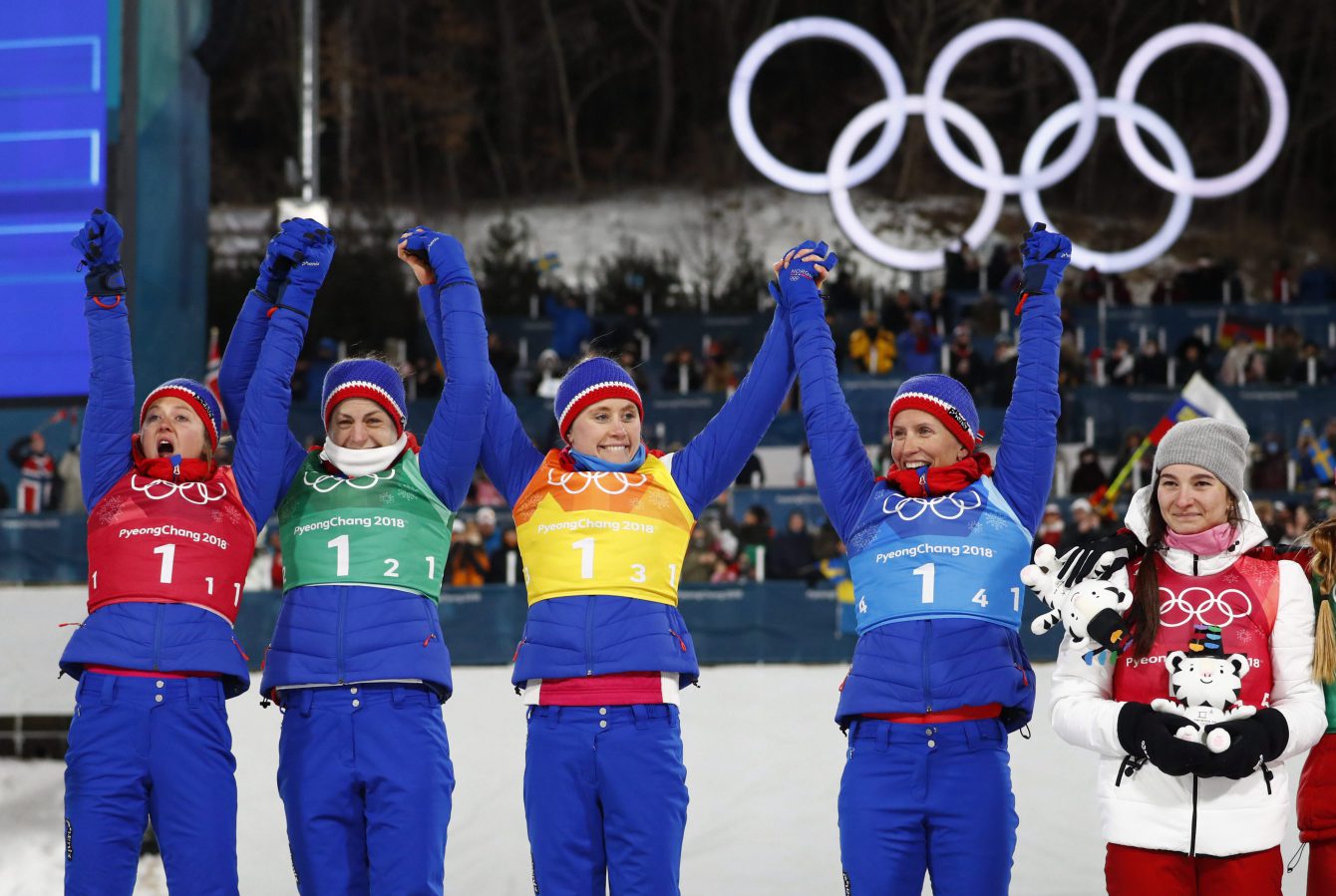
Norway’s Ingvild Flugstad Oestberg, from left, Astrid Uhrenholdt Cobsen, Ragnhild Haga and Marit Bjoergen celebrates after winning the the gold medal in the women’s 4 x 5km relay cross-country skiing competition at the 2018 Winter Olympics in Pyeongchang, South Korea, Saturday, Feb. 17, 2018. (AP Photo/Matthias Schrader)
The 39 medals won by Norway is an all-time Winter Games record by any country. With 14 gold medals, they matched Germany’s first place totals, and by virtue of another 14 silver and 11 bronze, the Games of PyeongChang 2018 belonged to Norway.
Unsurprisingly, the Norwegians were most prolific in cross-country skiing – the nation’s top medal contributor with 14 – led by Marit Bjoergen. She took five in Korea (two gold, a silver, and two bronze) for 15 overall in her career. The 37-year-old is the most decorated winter Olympian of all-time, and rightly it was her win in the very last event at PyeongChang that lifted Norway over Germany.
Germany
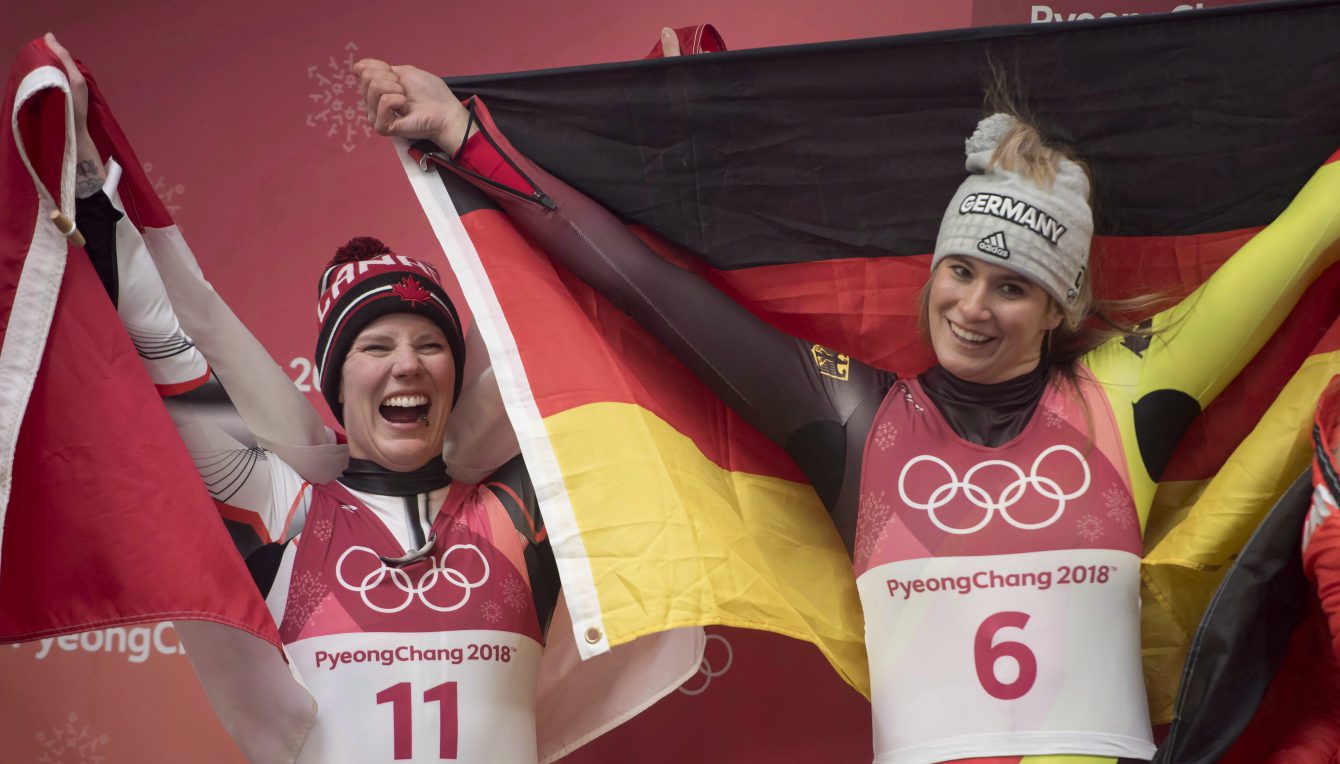
Canadian luger Alex Gough, left, of Calgary celebrates winning a bronze medal as Natalie Geisenberger of Germany celebrates her gold medal win in women’s luge at the Olympic Siding Centre at he Pyeongchang 2018 Winter Olympic Games in South Korea, Tuesday, Feb. 13, 2018. THE CANADIAN PRESS/Jonathan Hayward
The official Olympic medal table ranks countries in order of most gold acquired. To that end, Germany had top spot in its grasp but for conceding a shorthanded goal to Olympic Athletes from Russia in the men’s hockey final with less than a minute to go. The Russian team went on to win the hockey final, leaving Germany second in the medal standings.
With 14, Germany tied Norway, and Canada’s record from Vancouver 2010 for most gold medals won by a country at a single Winter Games. They added 10 silver and seven bronze medals for 31 overall. Massive contribution to the German cause came from Francesco Friedrich (bobsleigh) and Natalie Geisenberger (luge), each winning two gold medals.
Netherlands
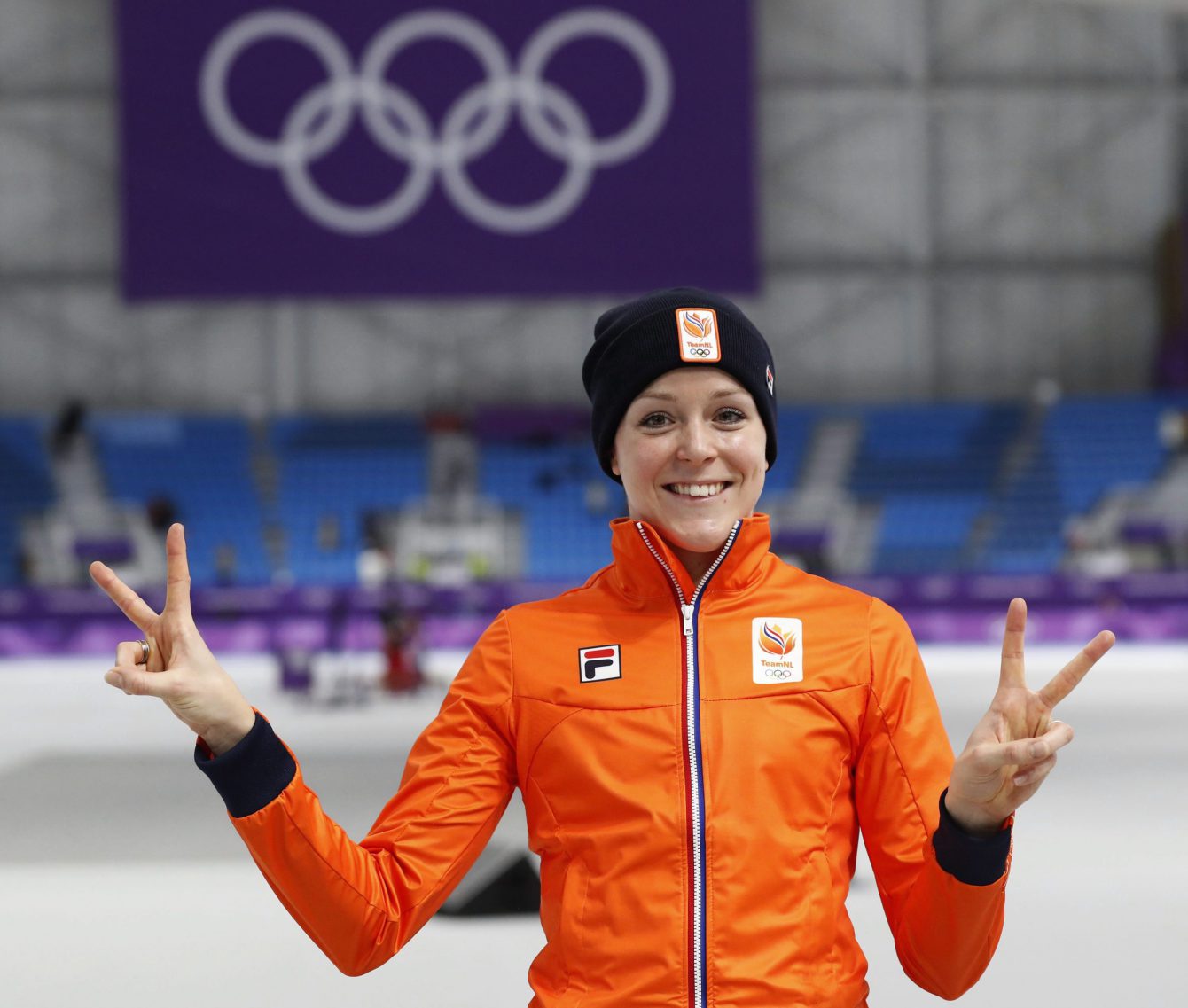
Gold medallist Jorien ter Mors of The Netherlands poses for photographers after the women’s 1,000 meters speedskating race at the Gangneung Oval at the 2018 Winter Olympics in Gangneung, South Korea, Wednesday, Feb. 14, 2018. (AP Photo/Petr David Josek)
As mentioned earlier, all 20 Netherlands medals (eight gold, six silver and bronze) came in speed skating (16 on the big oval, and four in short track). Of note, Jorien ter Mors made the podium in both disciplines, winning gold in the women’s 1000m on the oval, and joining her short track teammates to take the 3000m relay bronze.
South Korea
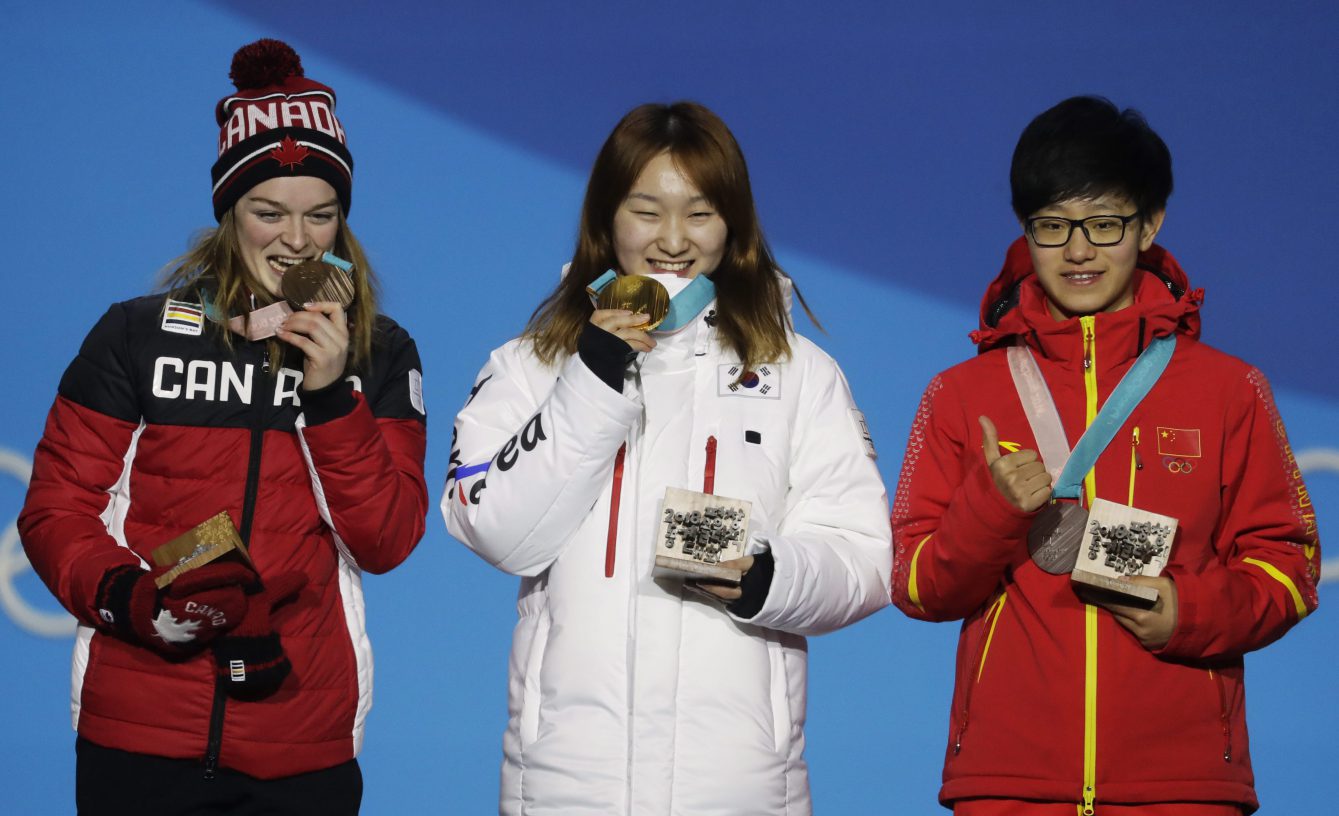
Medalists in the women’s 1500 meters short track speedskating, from right, China’s Li Jinyu, silver, South Korea’s Choi Min-jeong, gold, and Canada’s Kim Boutin, bronze, pose during their medals ceremony at the 2018 Winter Olympics in Pyeongchang, South Korea, Sunday, Feb. 18, 2018. (AP Photo/Morry Gash)
The host nation had its best-ever medal haul at the Olympic Winter Games with 16 (five gold, seven silver, four bronze). As expected, Korean speed skaters were most effective winning 13 of the medals, seven long track, six in short. In the latter Choi Minjeong was a double gold medallist.
Japan
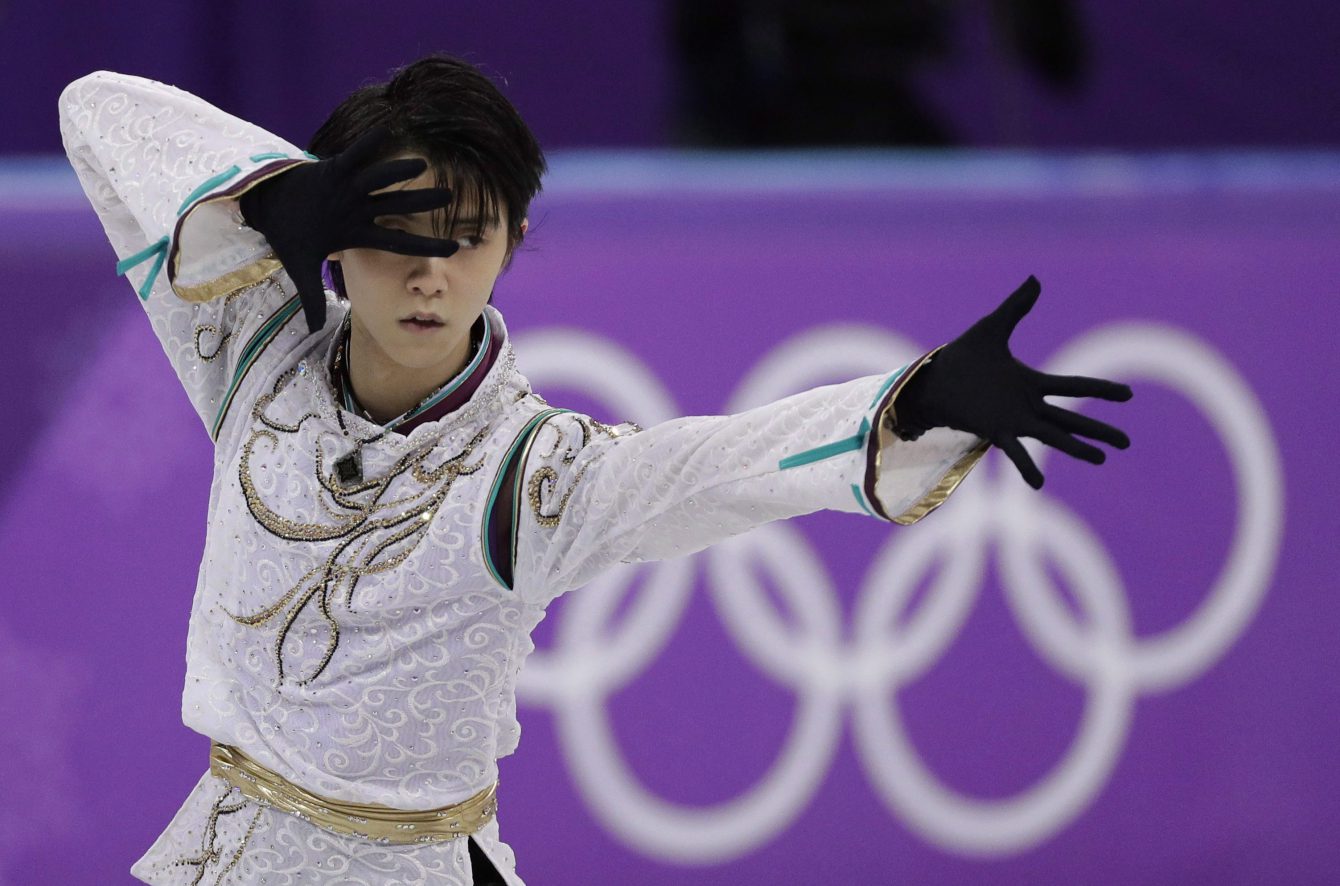
Yuzuru Hanyu of Japan performs during the men’s free figure skating final in the Gangneung Ice Arena at the 2018 Winter Olympics in Gangneung, South Korea, Saturday, Feb. 17, 2018. (AP Photo/David J. Phillip)
Host of the next Olympic Games in 2020 when the larger summer sports calendar sends thousands of more athletes to its capital Tokyo, Japan goes into host mode with national momentum. Its 13 medals (four gold, five silver, four bronze) is a best-ever showing, helped by Yuzuru Hanyu becoming the first back-to-back Olympic men’s figure skating champion since American Dick Button did it in 1948 and 1952.
United States
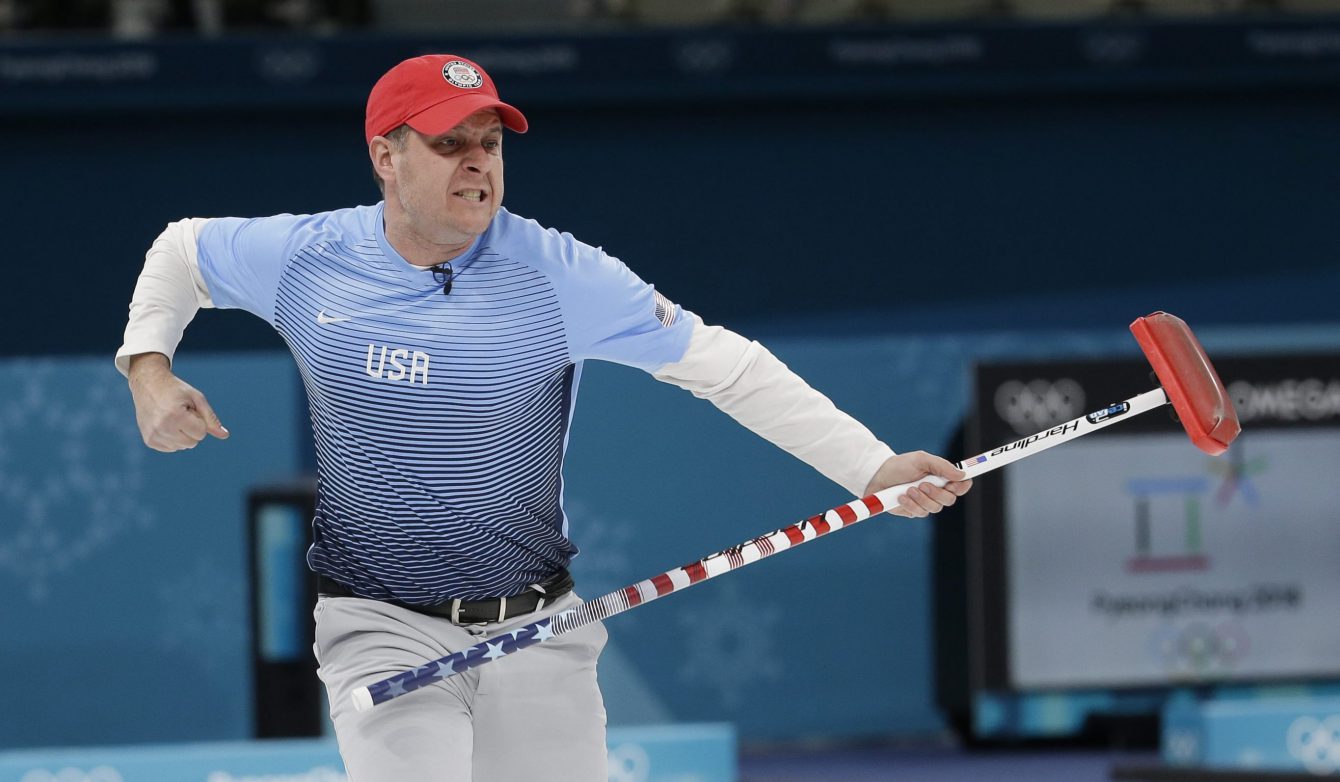
United States’s skip John Shuster reacts during the men’s final curling match against Sweden at the 2018 Winter Olympics in Gangneung, South Korea, Saturday, Feb. 24, 2018. (AP Photo/Natacha Pisarenko)
By their lofty standards, the US didn’t enjoy a typical Games, their medal count down from 28 four years ago to 23 in Korea. Nonetheless, nine gold medals can’t be discounted, including two Olympic titles that Canada held since Turin 2006: men’s curling and women’s hockey.
Olympic Athletes from Russia
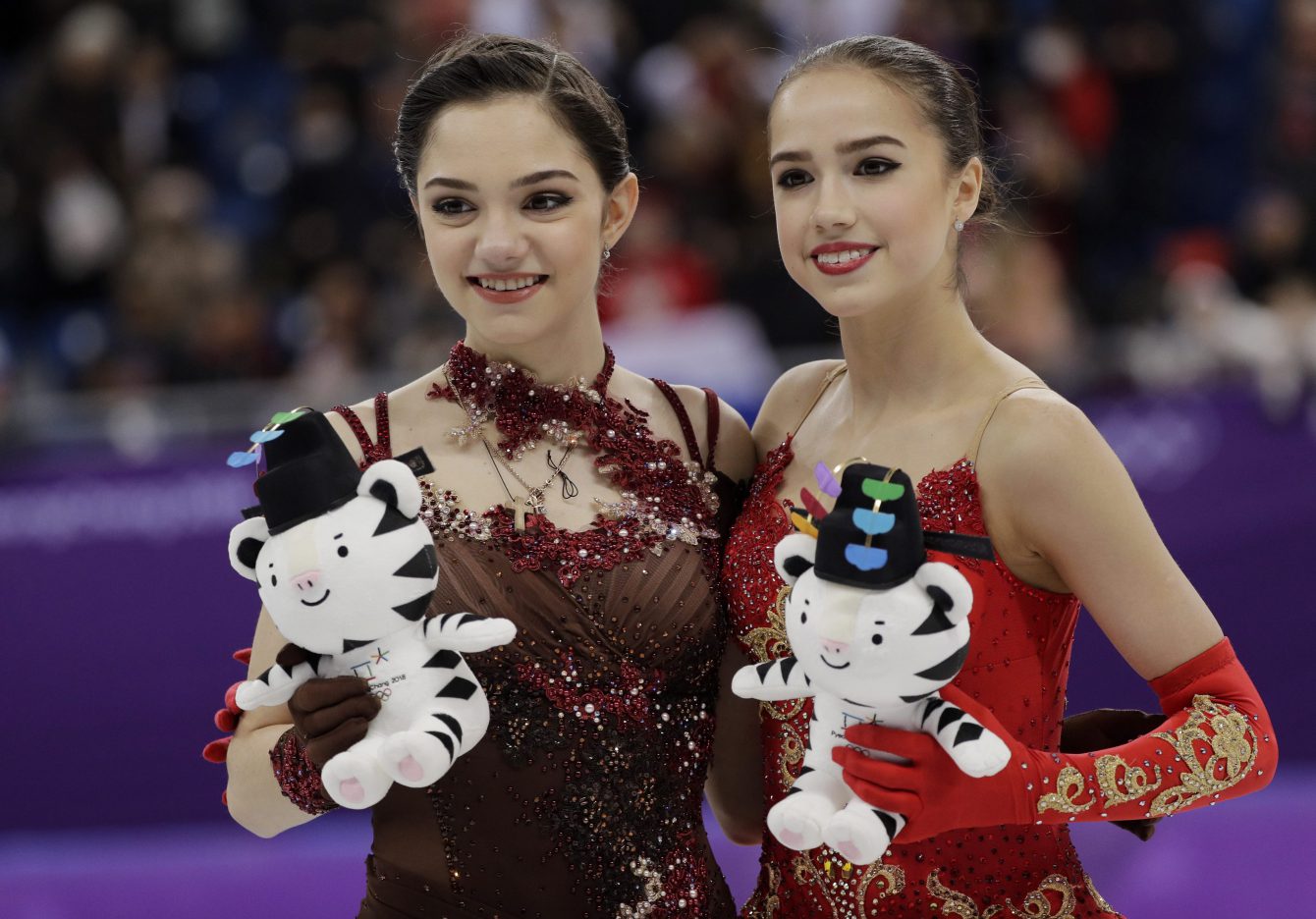
Gold medalist Alina Zagitova, right, of the Olympic Athletes of Russia poses for a photo with compatriot and silver medalist Evgenia Medvedeva at the women’s free figure skating final in the Gangneung Ice Arena at the 2018 Winter Olympics in Gangneung, South Korea, Friday, Feb. 23, 2018.(AP Photo/David J. Phillip)
At these Games the biggest Russian highlight by far was the women’s figure skating showdown between Alina Zagitova and Evgenia Medvedeva. The two teens finished first and second, respectively, with Zagitova becoming the second youngest Olympic women’s figure skating champion at 15 years and 281 days, just 26 days older than Tara Lipinksi of the United States who still holds that record. The Olympic Athletes from Russia leave Korea with 17 medals.
Czech Republic
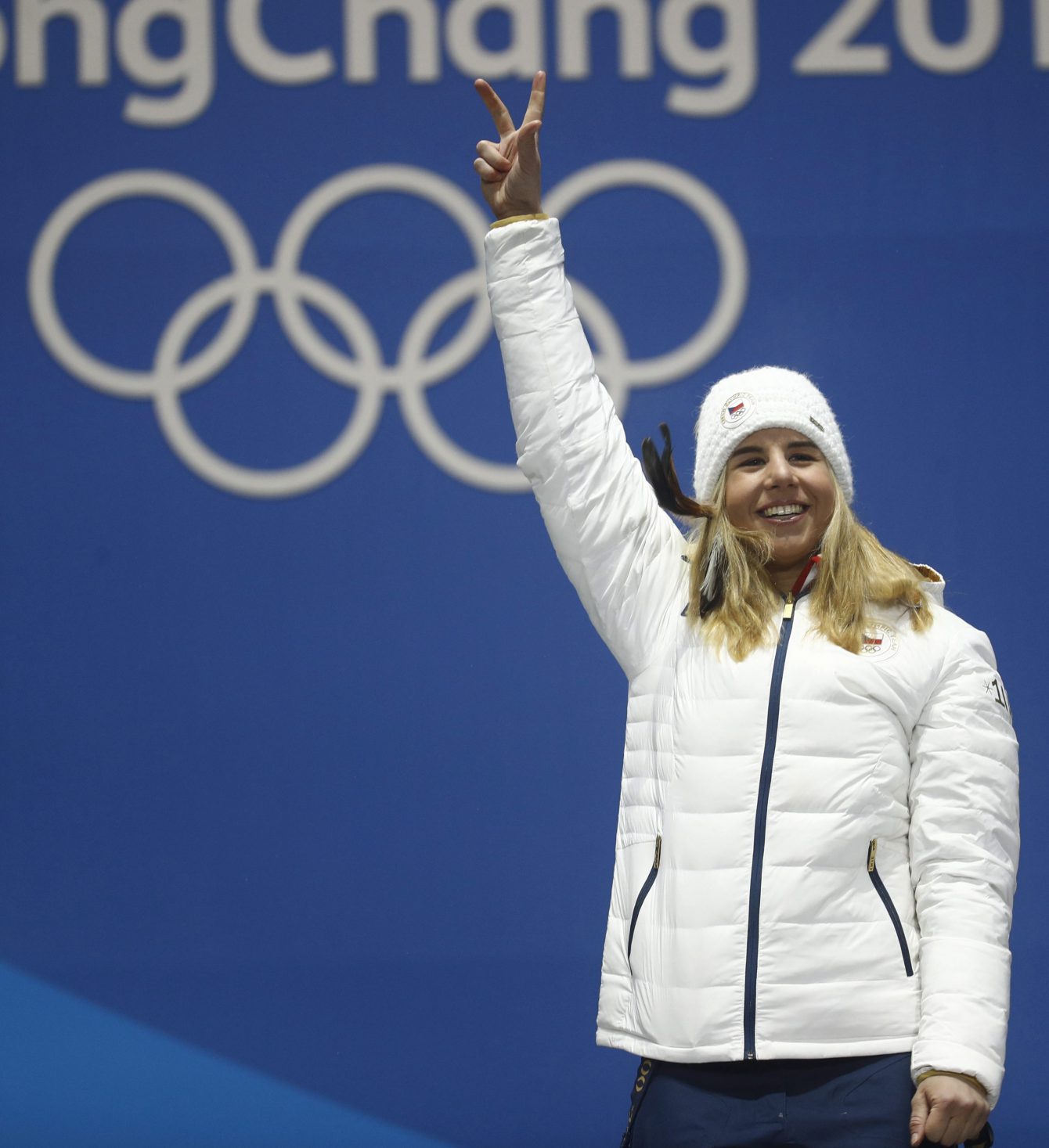
Gold medalist in the women’s parallel giant slalom Ester Ledecka, of the Czech Republic, celebrates during the medals ceremony at the 2018 Winter Olympics in Pyeongchang, South Korea, Saturday, Feb. 24, 2018. (AP Photo/Patrick Semansky)
Arguably the most impressive individual performance of PyeongChang belonged to Ester Ledecka. The Czech Olympian shocked the winter sports world by winning the women’s super-G on skis reportedly borrowed from American Mikaela Shiffrin (herself a gold medallist in the giant slalom). Primarily a snowboarder, Ledecka doubled her golden tally taking the women’s parallel giant slalom, becoming the first woman to win gold in two different sports at one Olympic Games. Hers were the only two gold medals for the Czechs.
Great Britain
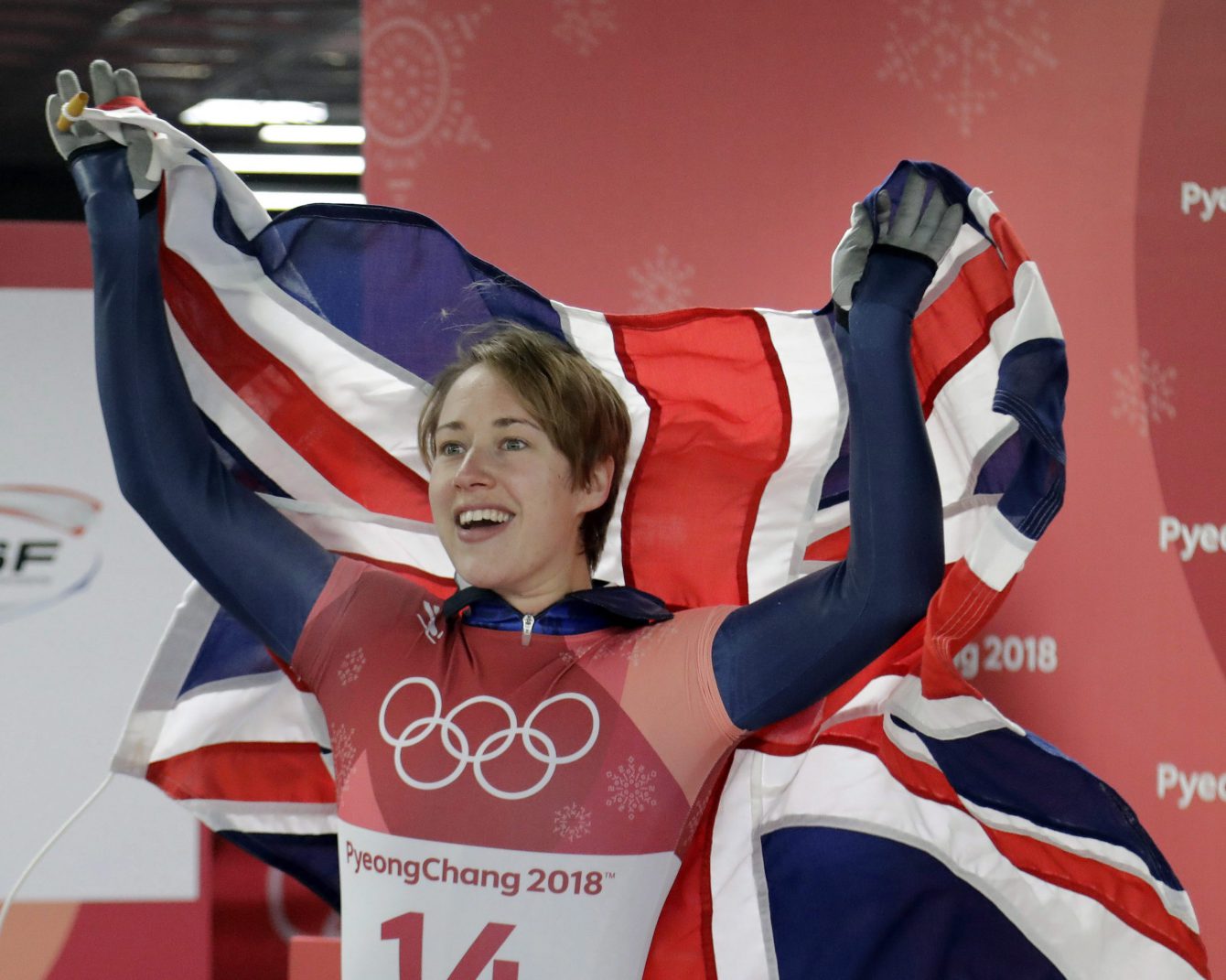
Lizzy Yarnold of Britain reacts to her gold medal finish after the final run of the women’s skeleton competition at the 2018 Winter Olympics in Pyeongchang, South Korea, Saturday, Feb. 17, 2018. (AP Photo/Wong Maye-E)
Some non-traditional winter sports countries often manage to find one athlete who can dominate a particular discipline. For the Brits, that’s Lizzy Yarnold. The skeleton racer repeated as Olympic champion, in the process becoming the nation’s first winter athlete to win two Olympic gold. Britain also saw its first-ever winter double podium with Laura Deas delivering skeleton bronze.
France
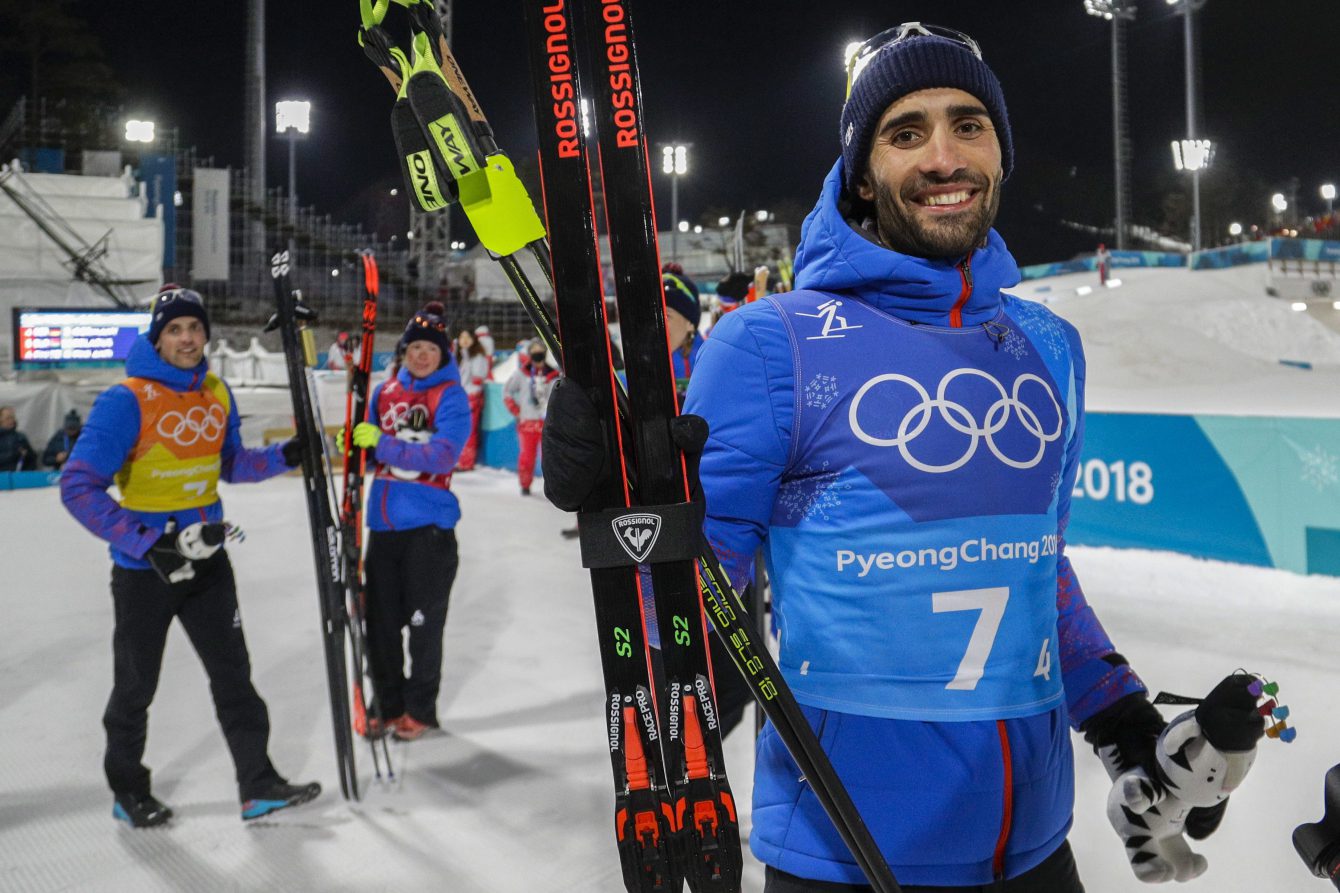
Gold medalist Martin Fourcade, of France, smile as he walks off the course at the 2×6-kilometer women’s + 2×7.5-kilometer men’s mixed relay biathlon at the 2018 Winter Olympics in Pyeongchang, South Korea, Tuesday, Feb. 20, 2018. (AP Photo/Gregorio Borgia)
Martin Fourcade won a hat-trick of gold medals in biathlon. The most impressive athlete on the planet in this discipline, the Frenchman has been on top of the podium five times (a French Olympic record) counting a double gold at Sochi 2014. He’s now up to seven Olympic biathlon medals at the age of 29.
Other notable national achievements included New Zealand and Spain ending winter medal droughts dating back to 1992, while Hungary ended an even longer wait going back to 1980 by taking the 5000m short track relay gold.
Staying with short track, Italy’s Arianna Fontana became the most decorated Olympic speed skater in her discipline with three more podiums taking her to eight, and Belarus’ Darya Domracheva added to her illustrious career becoming the first woman to win four Olympic gold medals in biathlon.
While this covers most of the top notch performances of PyeongChang 2018, there are countless other stories that could be told from the Olympic Winter Games. For now, we’ll wait until Beijing 2022.

